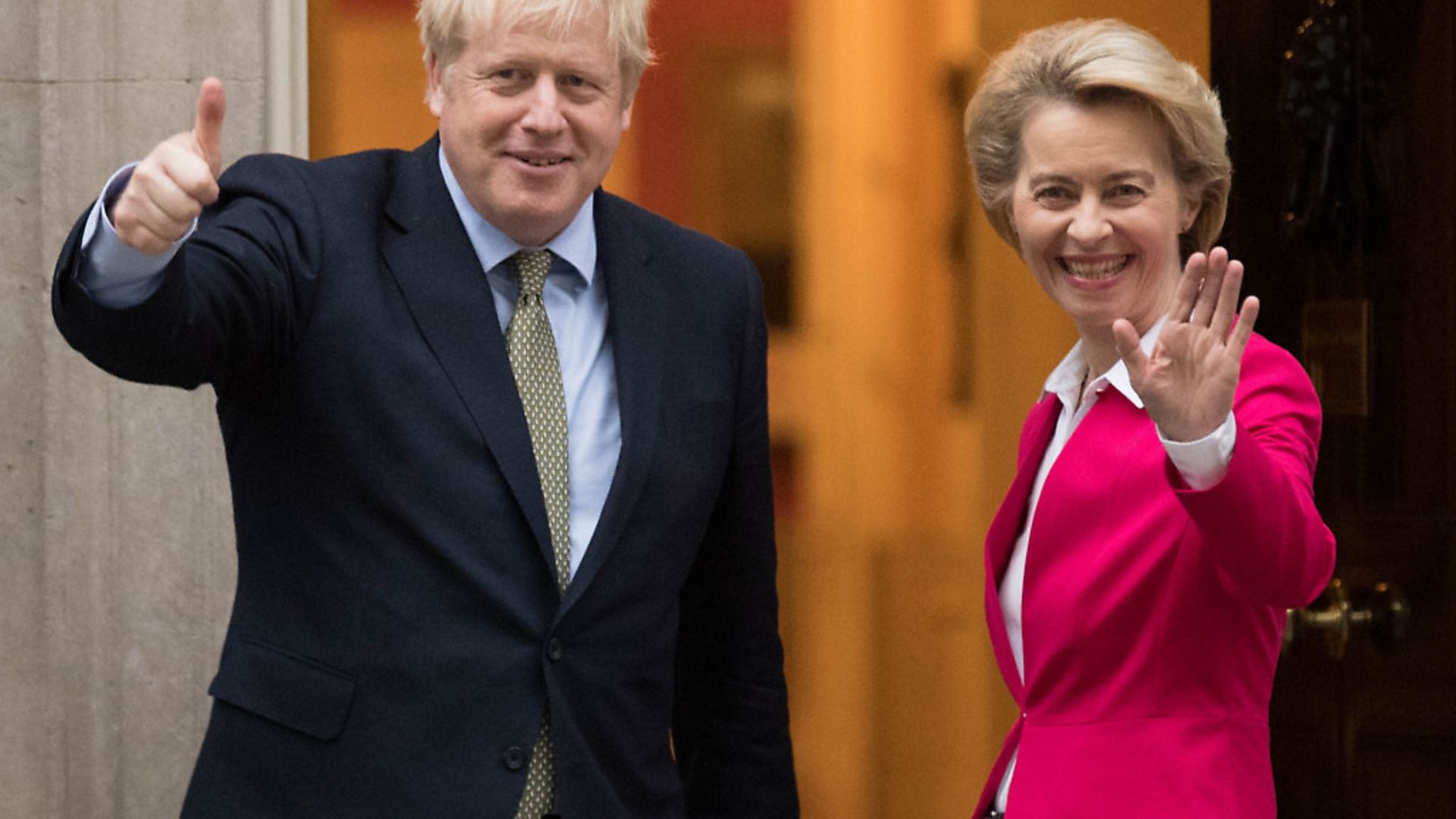
The EU’s head-in-sand approach to keeping the Iran deal afloat has highlighted the organisation’s weaknesses, says JAMES BALL.
The new decade has started with one of the stupidest and most dangerous escalations in history, thanks to – at least in the short-term – the short fuse of President Donald J. Trump and his continued presence on Twitter.
There’s a sizeable chance the series of tit-for-tat escalations between the US and Iran were set off by exchanges on the site between @realdonaldtrump and @khamenei_ir, the account operated in the name of Iran’s Ayatollah Khamenei, which threw down the gauntlet to a US president determined never to lose face.
But if the short-run version of the causes of an escalation which could ripple across the Middle East for years and devastate thousands or millions of lives is a miscalculation by Iran of the president’s temperament – or the ability of those around him to rein him in – the longer-term miscalculation may lie with the European Union.
The EU was instrumental in delivering the Iran nuclear deal, which has finally been declared dead after months on life support.
The deal – almost unanimously hailed as a huge diplomatic breakthrough when it was made – included the EU, US, Russia, China and Iran as signatories, and was based solely on containing and curtailing the country’s nuclear programme, in exchange for relief on sanctions.
The biggest problem with the deal, which was brokered extensively by the EU and which may represent the only significant foreign policy achievement in the bloc’s history, was that its US signatory was Barack Obama – and anything agreed by the former US president was clearly going to be condemned by his successor.
What has followed has all come from Trump’s decision to withdraw the US from the Iran deal in 2018, but it’s worth questioning whether things could have gone differently.
Faced with Trump’s disdain and withdrawal from the arrangement, the EU response seemed to largely involve the head-in-sand approach, desperately trying to hold the deal together, despite every seasoned diplomat knowing this effort was doomed.
The credit for making the deal is well-deserved by the EU, but it’s hard to applaud its efforts in trying to hold it together. Denial does not a foreign policy make.
What else could it have done? One answer comes from an astonishingly unlikely source – UK prime minister Boris Johnson, usually known for gaffes and failures on the world stage. In an interview on Tuesday morning, he noted that the way forward for de-escalation with Iran may be for a deal with Donald Trump’s, rather than Barack Obama’s, name on it.
For once, Johnson might be right. In 2018, the US president announced he was going to withdraw the US from the NAFTA bloc – its trade deal with Canada and Mexico.
Rather than adopt the EU’s denial approach, negotiators set out to agree an apparently completely new deal – USMCA – which to any onlooker except Trump looks almost identical to NAFTA, albeit with a few small concessions. With a new deal he could claim as his own, Trump was back on board and championing his foreign policy victory.
It is not hard to imagine that with such an effort a similar salvage operation could have been done to create a ‘new’ Iran deal.
The sad thing is that EU’s foreign policy arm – blinded by its distaste for the man in the White House – didn’t
even try to mitigate the harm he could do.
Foreign policy usually involves getting down and dirty. If there was any potential of salvaging a major win – a deal which kept the world safer from nuclear proliferation – simply by flattering a narcissist’s ego, the EU should have seized upon it. Someone needs to be the grown-up in the room, and the USA is certainly no longer fulfilling that role.
In practice, though, the EU’s ambition towards broader foreign policy outside of its formidable reputation on trade, seems futile if not doomed. Its only victory, the Iran deal, lies in tatters. There are few other likely successes coming in the pipeline.
Foreign policy, too, is one area where the EU certainly is damaged by Brexit. It has lost one of the countries with the most experienced diplomatic service and effective militaries, one of its two nuclear powers and one of its two seats on the UN Security Council.
If the EU wants to start being a force on the world stage – and it is clear that it does – it will have to accept its current position punches below its weight.
That requires an organisation to box clever, not slowly and clunkily, and only on its own terms.
If avoiding conflict requires a new grown-up in the world, the EU is a good candidate for the job – but only if it ups its game, and fast.
Warning: Illegal string offset 'link_id' in /mnt/storage/stage/www/wp-includes/bookmark.php on line 357
Notice: Trying to get property 'link_id' of non-object in /mnt/storage/stage/www/wp-includes/bookmark.php on line 37







